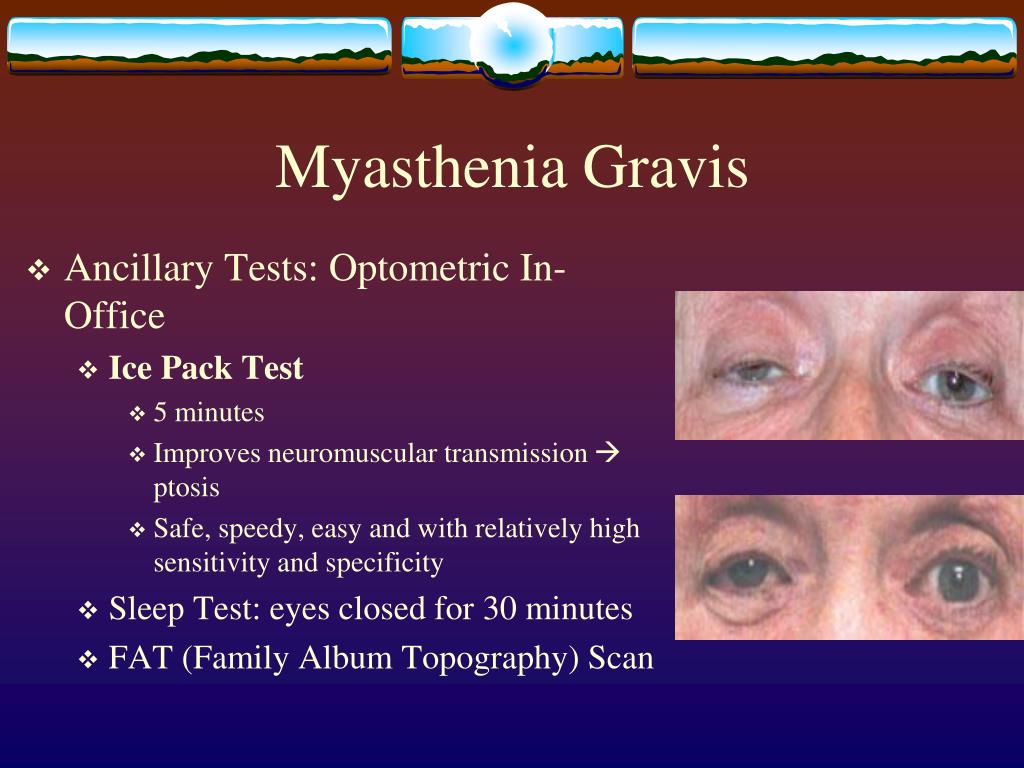Using beta blockers for anxiety
Benefits, Side Effects, and Risks
What are beta-blockers?
Beta-blockers are a class of medication that helps control your body’s fight-or-flight response and reduce its effects on your heart. Many people take beta-blockers to treat heart-related conditions, such as:
- high blood pressure
- heart failure
- an irregular heartbeat
Doctors can also prescribe beta-blockers for off-label use like for help managing anxiety symptoms. Read on to learn more about how beta-blockers impact anxiety, and whether they could work for you.
Beta-blockers are also called beta-adrenergic blocking agents. They prevent adrenaline — a stress-related hormone — from making contact with your heart’s beta receptors. This prevents adrenaline from making your heart pump harder or faster.
In addition to relaxing your heart, some beta-blockers also relax your blood vessels, which can help to reduce blood pressure.
There are many beta-blockers available, but some of the more common ones include:
- acebutolol (Sectral)
- bisoprolol (Zebeta)
- carvedilol (Coreg)
- propranolol (Inderal)
- atenolol (Tenormin)
- metoprolol (Lopressor)
All beta-blockers used to treat anxiety are prescribed off-label. Propranolol and atenolol are two beta-blockers that are often prescribed to help with anxiety.
Off-label drug useUsing a drug off-label means that a drug has been approved by the FDA for one purpose, and it’s being used for a different purpose that hasn’t been approved. A doctor can still prescribe it for this purpose because the FDA regulates the testing and approval of drugs, not how doctors use them to treat their patients. Your doctor can prescribe a drug off-label if they think it’s best for your care.
Beta-blockers won’t treat the underlying psychological causes of anxiety, but they can help you manage some of your body’s physical reactions to anxiety, such as:
- a fast heart rate
- shaky voice and hands
- sweating
- dizziness
By decreasing your body’s physical reactions to stress, you may feel less anxious during stressful times.
Beta-blockers work best for managing short-term anxiety about specific events, rather than long-term anxiety.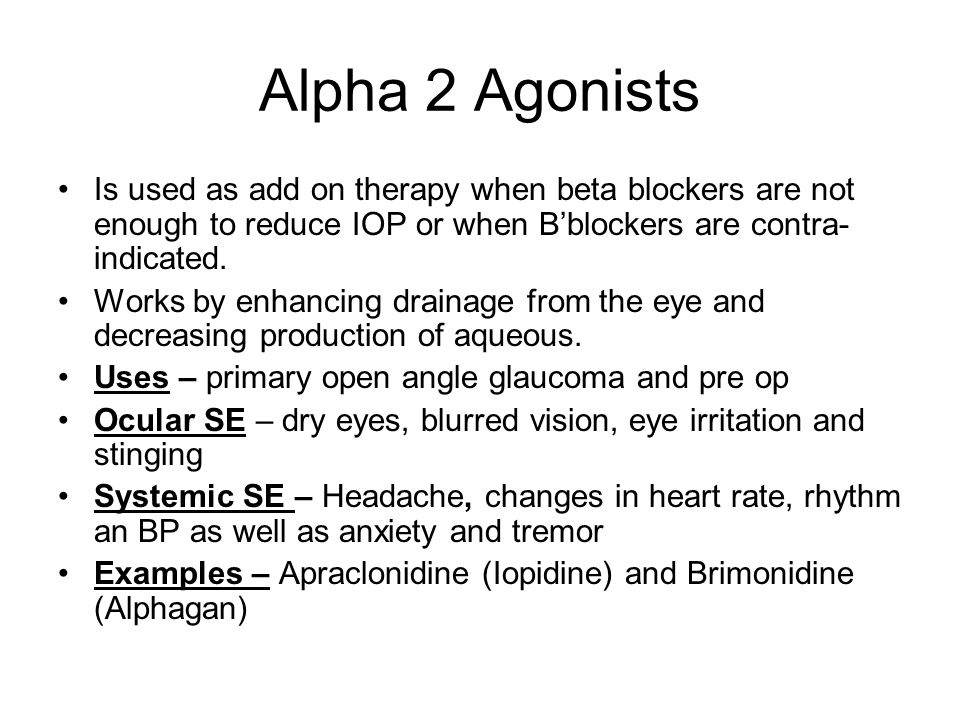 For example, you can take a beta-blocker before giving a public speech if that’s something that makes you feel anxious.
For example, you can take a beta-blocker before giving a public speech if that’s something that makes you feel anxious.
A 2016 review of existing research about using short-term propranolol for treating different anxiety disorders found that its effects were similar to those of benzodiazepines. These are another class of medication that’s often used to treat anxiety and panic disorders. However, benzodiazepines can cause a range of side effects, and some people have a higher risk of becoming dependent on them.
Still, the same review found that beta-blockers weren’t very effective for social phobias.
People respond differently to medications, especially when it comes to treating mental health issues like anxiety. What works for one person may not work at all for someone else. You may also need additional treatment options for your anxiety while taking beta-blockers, to get to the more psychological aspects.
Both atenolol and propranolol come in pill form. The amount you should take depends on both the type of beta-blocker and your medical history. Never take more than what your doctor prescribes.
Never take more than what your doctor prescribes.
You’ll likely notice results the first time you take beta-blockers for anxiety, but they can take an hour or two to reach their full effect. During this time, you’ll feel your heart rate decrease, which might make you feel more relaxed.
Depending on your symptoms, your doctor might suggest taking a beta-blocker regularly or just before stressful events. Usually, beta-blockers will be used in combination with other treatments such as therapy, lifestyle changes, and other medications.
Beta-blockers can cause some side effects, especially when you first start taking them.
Possible side effects include:
- fatigue
- cold hands and feet
- headache
- dizziness or lightheadedness
- depression
- shortness of breath
- vomiting, diarrhea, or constipation
Call your doctor if you experience any more serious side effects, including:
- very slow or irregular heartbeat
- low blood sugar
- an asthma attack
- swelling and fluid retention, along with weight gain
If you notice mild side effects, don’t stop taking the beta-blocker without talking to your doctor first. If you take beta-blockers regularly, you may have serious withdrawal symptoms if you suddenly stop.
If you take beta-blockers regularly, you may have serious withdrawal symptoms if you suddenly stop.
For some people, the side effects of beta-blockers may actually cause anxiety symptoms. You should follow up with your doctor as soon as possible if you feel like taking beta-blockers is increasing your anxiety.
While beta-blockers are generally safe, certain people shouldn’t take them.
Before taking beta-blockers, make sure to tell your doctor if you have:
- asthma
- low blood sugar
- final stage heart failure
- very low blood pressure
- very slow heart rate
If you have any of these conditions or symptoms, you may still be able to take beta-blockers, but you’ll need to work with your doctor to weigh the risks and benefits.
Beta-blockers can also interact with other medications used to treat many heart conditions and antidepressants, so make sure you keep your doctor up to date about any medications, supplements, or vitamins you take.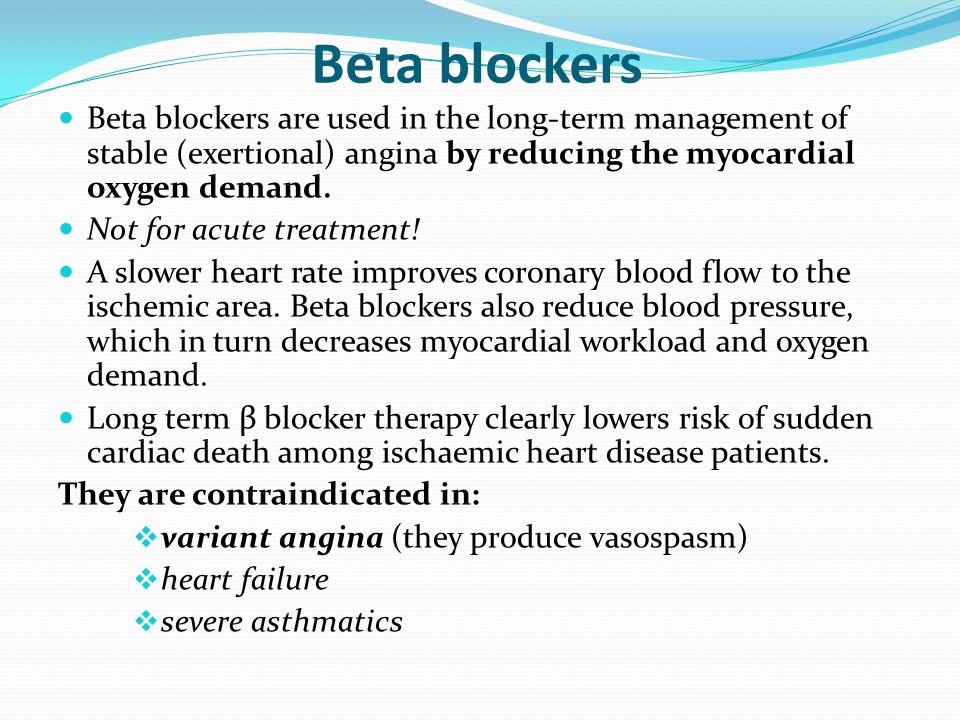
Beta-blockers can be helpful in managing symptoms for some people with anxiety. It’s been shown as a viable treatment option for short-term anxiety, especially before a stressful event. However, beta-blockers aren’t as useful for long-term treatment.
If you’re interested in trying beta-blockers for managing your anxiety, speak with your doctor. They can advise on the best treatment plan for you that will help manage your specific symptoms.
Benefits, Side Effects, and Risks
What are beta-blockers?
Beta-blockers are a class of medication that helps control your body’s fight-or-flight response and reduce its effects on your heart. Many people take beta-blockers to treat heart-related conditions, such as:
- high blood pressure
- heart failure
- an irregular heartbeat
Doctors can also prescribe beta-blockers for off-label use like for help managing anxiety symptoms. Read on to learn more about how beta-blockers impact anxiety, and whether they could work for you.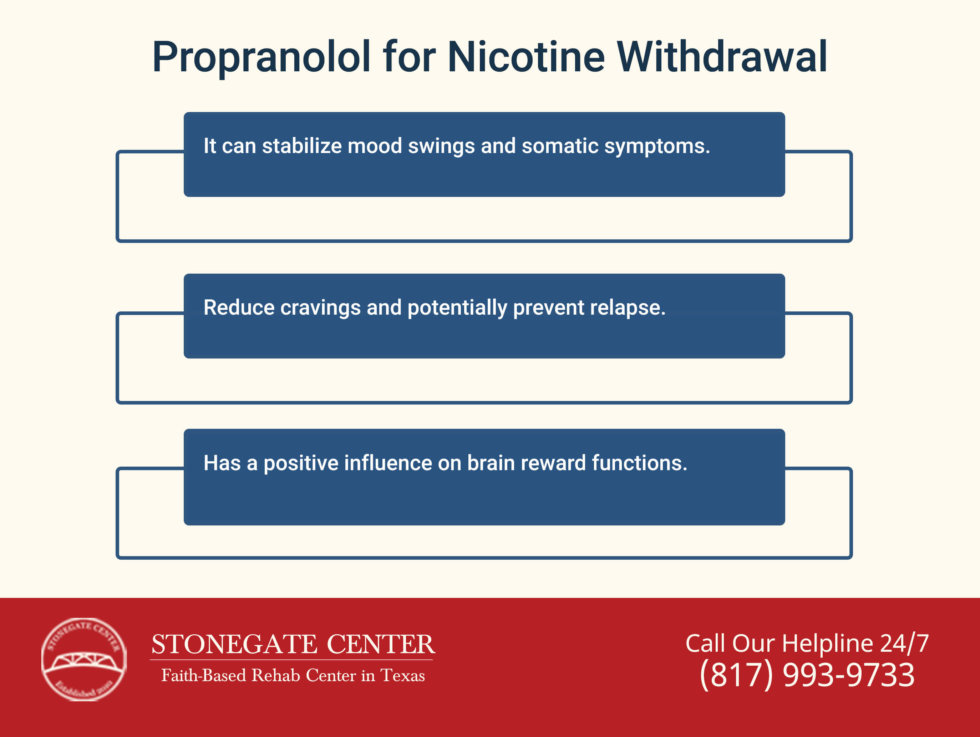
Beta-blockers are also called beta-adrenergic blocking agents. They prevent adrenaline — a stress-related hormone — from making contact with your heart’s beta receptors. This prevents adrenaline from making your heart pump harder or faster.
In addition to relaxing your heart, some beta-blockers also relax your blood vessels, which can help to reduce blood pressure.
There are many beta-blockers available, but some of the more common ones include:
- acebutolol (Sectral)
- bisoprolol (Zebeta)
- carvedilol (Coreg)
- propranolol (Inderal)
- atenolol (Tenormin)
- metoprolol (Lopressor)
All beta-blockers used to treat anxiety are prescribed off-label. Propranolol and atenolol are two beta-blockers that are often prescribed to help with anxiety.
Off-label drug useUsing a drug off-label means that a drug has been approved by the FDA for one purpose, and it’s being used for a different purpose that hasn’t been approved.
A doctor can still prescribe it for this purpose because the FDA regulates the testing and approval of drugs, not how doctors use them to treat their patients. Your doctor can prescribe a drug off-label if they think it’s best for your care.
Beta-blockers won’t treat the underlying psychological causes of anxiety, but they can help you manage some of your body’s physical reactions to anxiety, such as:
- a fast heart rate
- shaky voice and hands
- sweating
- dizziness
By decreasing your body’s physical reactions to stress, you may feel less anxious during stressful times.
Beta-blockers work best for managing short-term anxiety about specific events, rather than long-term anxiety. For example, you can take a beta-blocker before giving a public speech if that’s something that makes you feel anxious.
A 2016 review of existing research about using short-term propranolol for treating different anxiety disorders found that its effects were similar to those of benzodiazepines.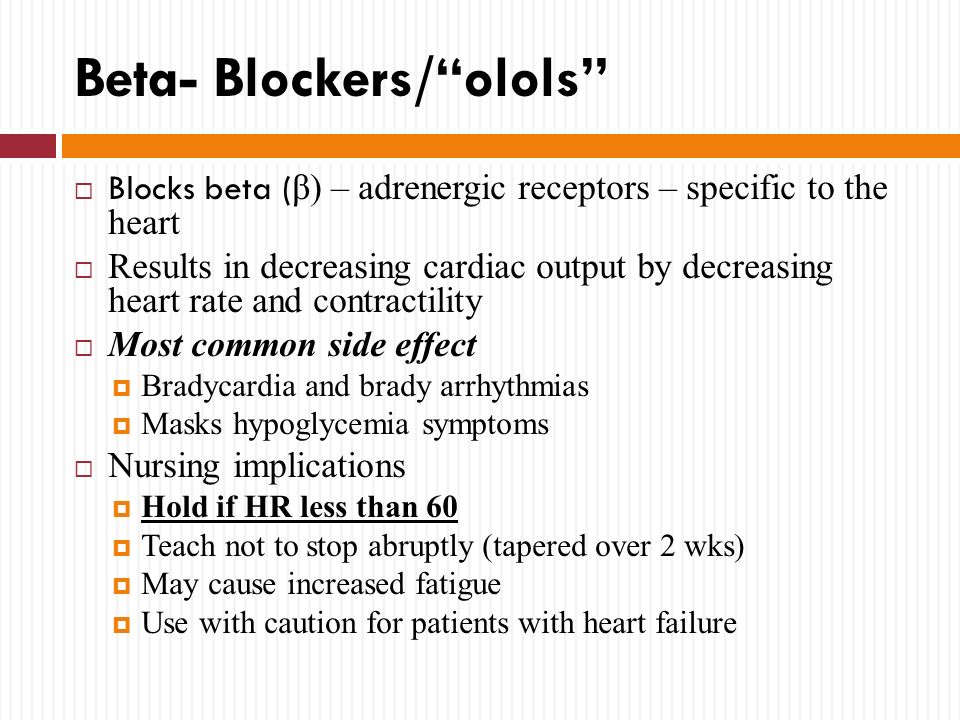 These are another class of medication that’s often used to treat anxiety and panic disorders. However, benzodiazepines can cause a range of side effects, and some people have a higher risk of becoming dependent on them.
These are another class of medication that’s often used to treat anxiety and panic disorders. However, benzodiazepines can cause a range of side effects, and some people have a higher risk of becoming dependent on them.
Still, the same review found that beta-blockers weren’t very effective for social phobias.
People respond differently to medications, especially when it comes to treating mental health issues like anxiety. What works for one person may not work at all for someone else. You may also need additional treatment options for your anxiety while taking beta-blockers, to get to the more psychological aspects.
Both atenolol and propranolol come in pill form. The amount you should take depends on both the type of beta-blocker and your medical history. Never take more than what your doctor prescribes.
You’ll likely notice results the first time you take beta-blockers for anxiety, but they can take an hour or two to reach their full effect. During this time, you’ll feel your heart rate decrease, which might make you feel more relaxed.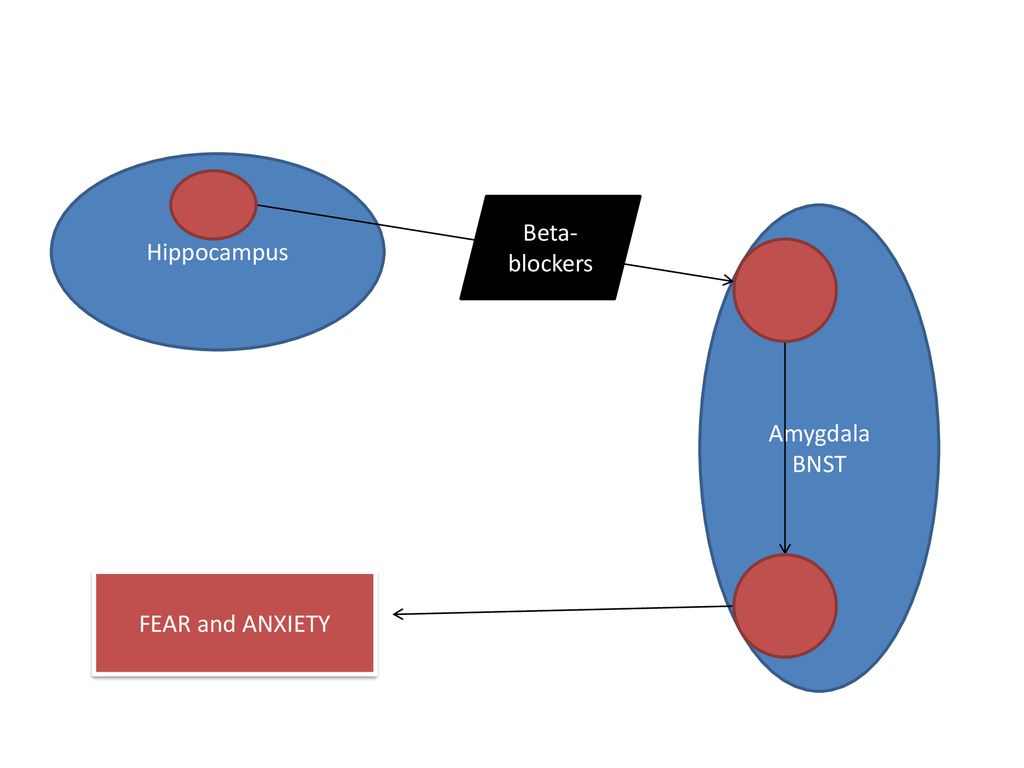
Depending on your symptoms, your doctor might suggest taking a beta-blocker regularly or just before stressful events. Usually, beta-blockers will be used in combination with other treatments such as therapy, lifestyle changes, and other medications.
Beta-blockers can cause some side effects, especially when you first start taking them.
Possible side effects include:
- fatigue
- cold hands and feet
- headache
- dizziness or lightheadedness
- depression
- shortness of breath
- vomiting, diarrhea, or constipation
Call your doctor if you experience any more serious side effects, including:
- very slow or irregular heartbeat
- low blood sugar
- an asthma attack
- swelling and fluid retention, along with weight gain
If you notice mild side effects, don’t stop taking the beta-blocker without talking to your doctor first. If you take beta-blockers regularly, you may have serious withdrawal symptoms if you suddenly stop.
For some people, the side effects of beta-blockers may actually cause anxiety symptoms. You should follow up with your doctor as soon as possible if you feel like taking beta-blockers is increasing your anxiety.
While beta-blockers are generally safe, certain people shouldn’t take them.
Before taking beta-blockers, make sure to tell your doctor if you have:
- asthma
- low blood sugar
- final stage heart failure
- very low blood pressure
- very slow heart rate
If you have any of these conditions or symptoms, you may still be able to take beta-blockers, but you’ll need to work with your doctor to weigh the risks and benefits.
Beta-blockers can also interact with other medications used to treat many heart conditions and antidepressants, so make sure you keep your doctor up to date about any medications, supplements, or vitamins you take.
Beta-blockers can be helpful in managing symptoms for some people with anxiety.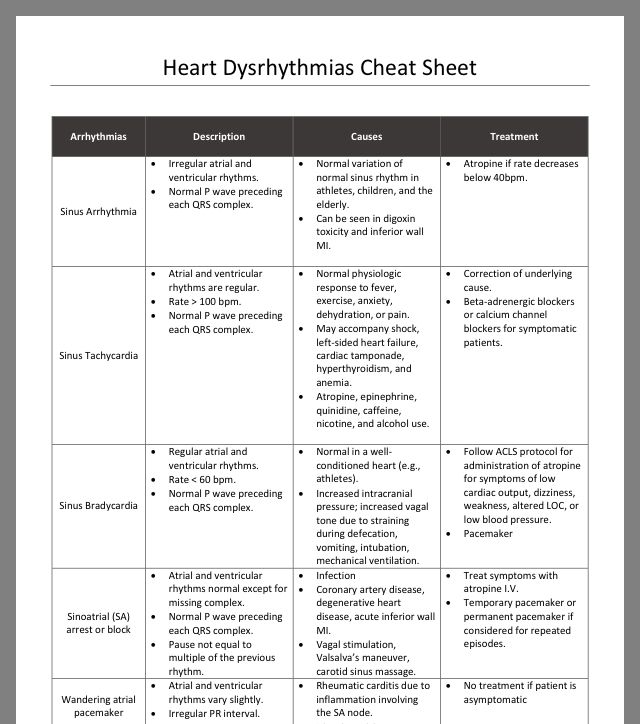 It’s been shown as a viable treatment option for short-term anxiety, especially before a stressful event. However, beta-blockers aren’t as useful for long-term treatment.
It’s been shown as a viable treatment option for short-term anxiety, especially before a stressful event. However, beta-blockers aren’t as useful for long-term treatment.
If you’re interested in trying beta-blockers for managing your anxiety, speak with your doctor. They can advise on the best treatment plan for you that will help manage your specific symptoms.
types, principle of action and areas of application
- Action of beta-blockers
- Discovery history
- Classification of beta-blockers
- Applications
Cardiac activity is completely subordinated to adrenaline release, which speeds up the pulse, increases blood pressure and heart rate. Beta-blockers help slow down the process to protect the heart from the long-term effects of epinephrine and norepinephrine (catecholamines).
Action of beta-blockers
Beta-blockers stop the transmission of certain nerve impulses. When a nerve is stimulated, the ends of some nerves release a chemical (a neurotransmitter) called norepinephrine.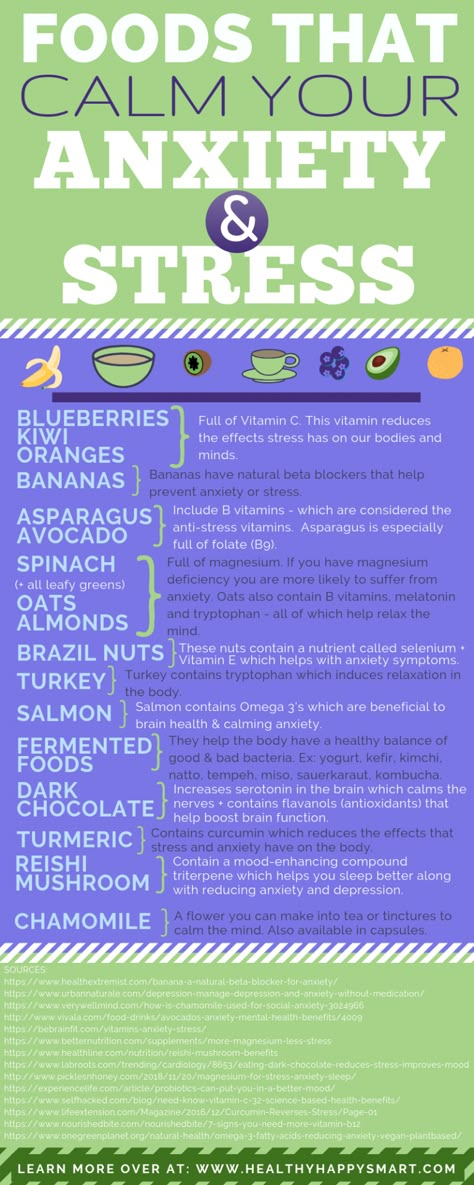 This chemical then stimulates beta-adrenergic receptors. There are two different types: beta1 (β1)-adrenergic receptors, which affect the strength and frequency of heart contractions, as well as blood pressure. Beta2 (β2)-adrenergic receptors cause relaxation of the smooth muscles of the bronchi, uterus and blood vessels.
This chemical then stimulates beta-adrenergic receptors. There are two different types: beta1 (β1)-adrenergic receptors, which affect the strength and frequency of heart contractions, as well as blood pressure. Beta2 (β2)-adrenergic receptors cause relaxation of the smooth muscles of the bronchi, uterus and blood vessels.
In the body, beta-blockers inhibit the action of the stress hormone adrenaline and the messenger substance norepinephrine. This leads to a decrease in heart rate. The heart muscle requires less oxygen and relaxes, which is especially important for patients with chronic heart failure or coronary heart disease.
Physicians commonly combine beta-blockers with other active ingredients to lower blood pressure, and their arousal-suppressing effect makes them the #1 drug in the fight against cardiac arrhythmias. Beta-blockers are available in the form of tablets, only a small part is for intravenous use.
Discovery history
In 1948, the American Raymond Ahlquist established the importance of the participation of norepinephrine in the transmission of nerve impulses.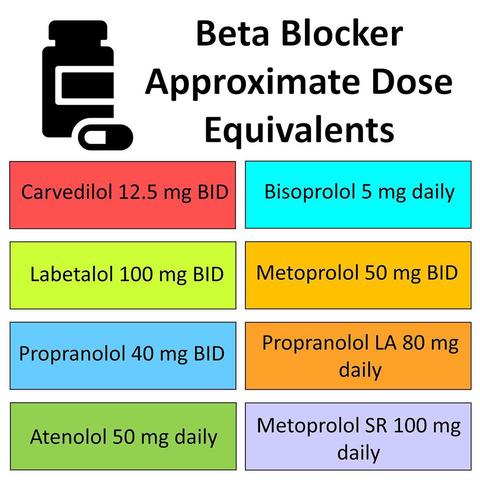 By this time, two types of adrenergic receptors were also known: alpha, which are most often present in the contractile tissues (smooth muscles) of the brain and liver, and beta, concentrated in the endocrine and external secretion glands, heart and kidneys.
By this time, two types of adrenergic receptors were also known: alpha, which are most often present in the contractile tissues (smooth muscles) of the brain and liver, and beta, concentrated in the endocrine and external secretion glands, heart and kidneys.
In 1958, pharmacologist James Black from Scotland got a job as a young specialist at ICI Pharmaceuticals, choosing the most promising area - pharmacotherapy to improve myocardial blood supply. Thanks to Black at 19In 1968, the first beta-blocker, Propranolol, rolled off the assembly line. For his discovery and development, James Black was awarded the Nobel Prize in Physiology or Medicine in 1988.
Over the entire history, about a hundred drugs have been synthesized, 30 of them are used in modern practice. The last revolutionary drug of the new generation, Nebivolol, was developed in 2001. It combines the developments of previous generations with a small addition - a vasodilating effect.
Classification of beta-blockers
-
Selective / non-selective.
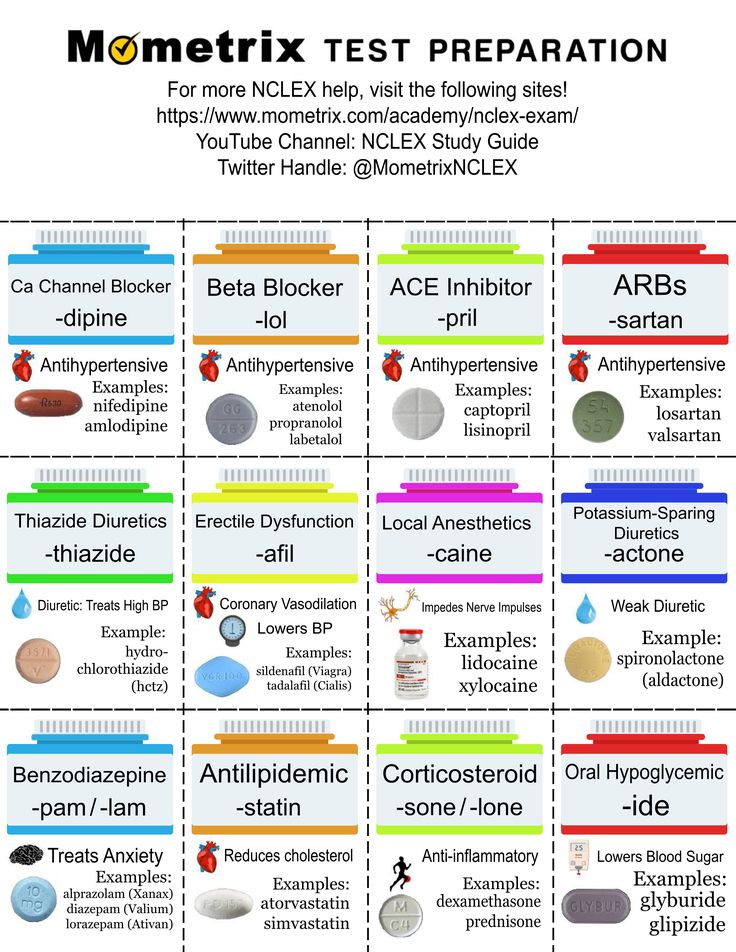 Non-selective equally affect both types of β1 / β2 receptors. Selective ones are directed only to β1 receptors.
Non-selective equally affect both types of β1 / β2 receptors. Selective ones are directed only to β1 receptors. -
Lipophilic or fat soluble. It is better to overcome the blood-brain barrier between the circulatory and central nervous system, the drug is excreted by the liver, because of this, it should be carefully used by people suffering from liver failure. Absorption - 70–90%.
-
Hydrophilic, or water-soluble, are metabolized in the liver for an order of magnitude longer, which means a prolonged effect of action. Excreted by the kidneys. Absorption - 30-50%.
-
Amphiphilic blockers are lipid and water soluble. Absorption of the drug - 40-60%. It is equally well excreted by both the liver and the kidneys.
Applications:
-
hypertension. Beta-blockers prevent the negative effects of the sympathetic nervous system on the heart. The need for oxygen decreases, blood pressure stabilizes;
-
heart failure.
 Studies have shown that the use of beta-blockers reduces the risk of death from heart failure by 30% and the risk of severe conditions requiring hospitalization by 40%. Among patients with chronic or long-term heart failure, the risk of sudden death is reduced by 38%. Beta-blockers that are useful for heart failure include carvedilol, bisoprolol, nebivolol, and long-acting metoprolol;
Studies have shown that the use of beta-blockers reduces the risk of death from heart failure by 30% and the risk of severe conditions requiring hospitalization by 40%. Among patients with chronic or long-term heart failure, the risk of sudden death is reduced by 38%. Beta-blockers that are useful for heart failure include carvedilol, bisoprolol, nebivolol, and long-acting metoprolol; -
acute myocardial infarction or heart attack. Beta-blockers such as Carvedilol and Netoprolol may reduce the risk of heart attack and death. The drugs are especially useful for high-risk patients who have prolonged cardiac ischemia or left ventricular dysfunction;
-
chronic stable angina. Patients with this disease experience a lack of blood supply (ischemia) to the heart muscles, resulting in chest pain, especially during exercise. Beta-blockers reduce myocardial oxygen demand and heart rate. A special form of angina pectoris called "Prinzmetal's angina" should not be treated with non-selective beta-blockers, since the components can aggravate the condition;
-
cardiac arrhythmias or arrhythmias.
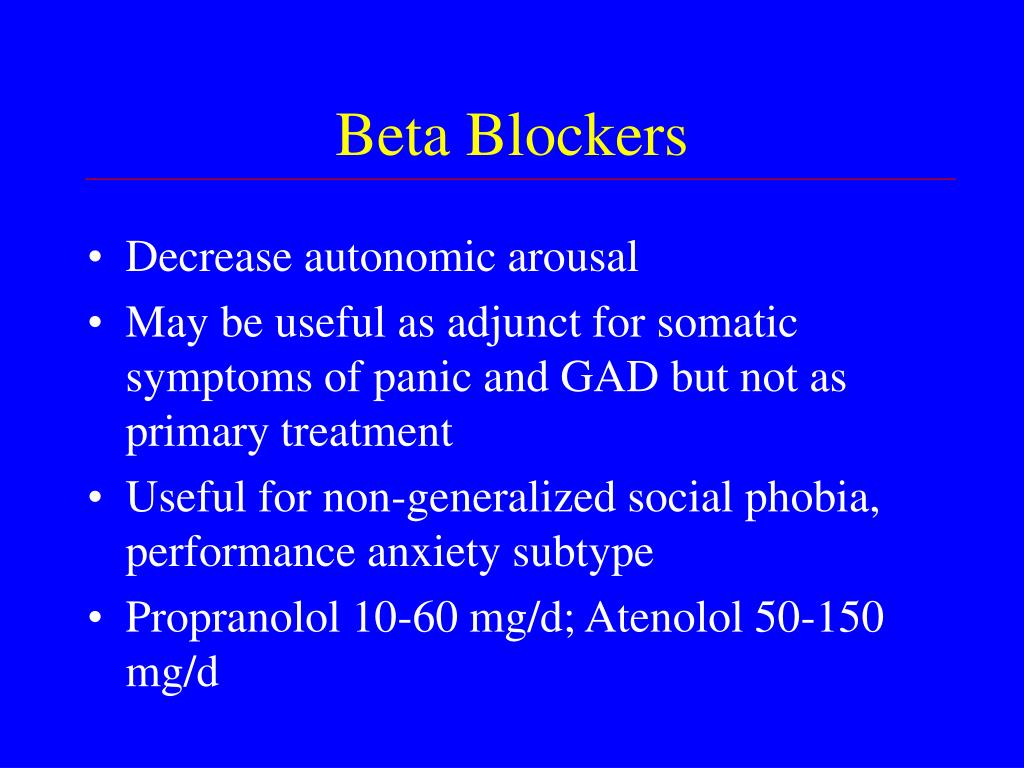 Some beta-blockers can be used to treat arrhythmias, such as Sotalol, Esmolol, and Propranolol. Beta-blockers are recommended in cases of arrhythmias involving the ventricles to reduce the risk of cardiac death from ventricular arrhythmias. Beta-blockers are also effective in treating an inherited arrhythmia called "Long Interval Syndrome";
Some beta-blockers can be used to treat arrhythmias, such as Sotalol, Esmolol, and Propranolol. Beta-blockers are recommended in cases of arrhythmias involving the ventricles to reduce the risk of cardiac death from ventricular arrhythmias. Beta-blockers are also effective in treating an inherited arrhythmia called "Long Interval Syndrome"; -
glaucoma. This condition, in which pressure builds up in the eye due to fluid buildup, is a common cause of vision loss among older adults. Eye drops containing beta-blockers reduce fluid production and normalize eye pressure;
-
anxiety. Drugs neutralize the effect of stress hormones on the psychological state. As a result, the frequency of physical manifestations of anxiety, tremor, sweating is significantly reduced. Many public figures take beta-blockers before performances to relieve emotional stress. However, in case of clinical manifestation of anxiety, it is necessary to consult with a specialized doctor;
-
overactive thyroid.
 Medicines reduce the frequency of symptomatic manifestations (tremors, heart palpitations) by blocking the action of thyroid hormone in the bloodstream;
Medicines reduce the frequency of symptomatic manifestations (tremors, heart palpitations) by blocking the action of thyroid hormone in the bloodstream; -
essential tremor. Studies show that 50-60% of people notice an improvement in their condition after taking Propranolol, hand tremor stops.
The duration of treatment is determined on the basis of the patient's condition and diseases. Some people only need to take beta-blockers for a few weeks or months, such as those with an overactive thyroid. Others - all their lives, for example, after a heart attack (myocardial infarction).
Beta blockers for anxiety: benefits, side effects and risks
contents
What are beta blockers?
Beta-blockers are a class of drugs that help control your body's fight to escape or reduce its effect on the heart. Many people take beta-blockers to treat cardiovascular problems such as:
- high blood pressure
- heart failure
- arrhythmia
Doctors may also prescribe beta-blockers for use without medication, for example, to relieve symptoms of anxiety. Read on to learn more about how beta blockers affect anxiety and whether they might affect you.
Read on to learn more about how beta blockers affect anxiety and whether they might affect you.
How do beta-blockers work?
Beta-blockers are also called beta-blockers. They prevent the contact of adrenaline - the stress hormone - with the beta receptors of the heart. This prevents adrenaline from making your heart harder or faster.
In addition to relaxing the heart, some beta-blockers also relax the blood vessels, which can help lower blood pressure.
many beta-blockers are available, but some of the most common:
- Acetolol (sectoral)
- Bisoprolol (zebut)
- Coremedilol (Coreg)
- Prranolol (anapolin)
- Atenolol (Tenormin)
- method )
All beta-blockers used to treat anxiety are prescribed without a label. Propranolol and atenolol are two beta-blockers often prescribed to relieve anxiety.
Offline drug use Drug use outside of marriage means that a drug has been approved by the FDA for one purpose and is being used for another purpose that is not approved.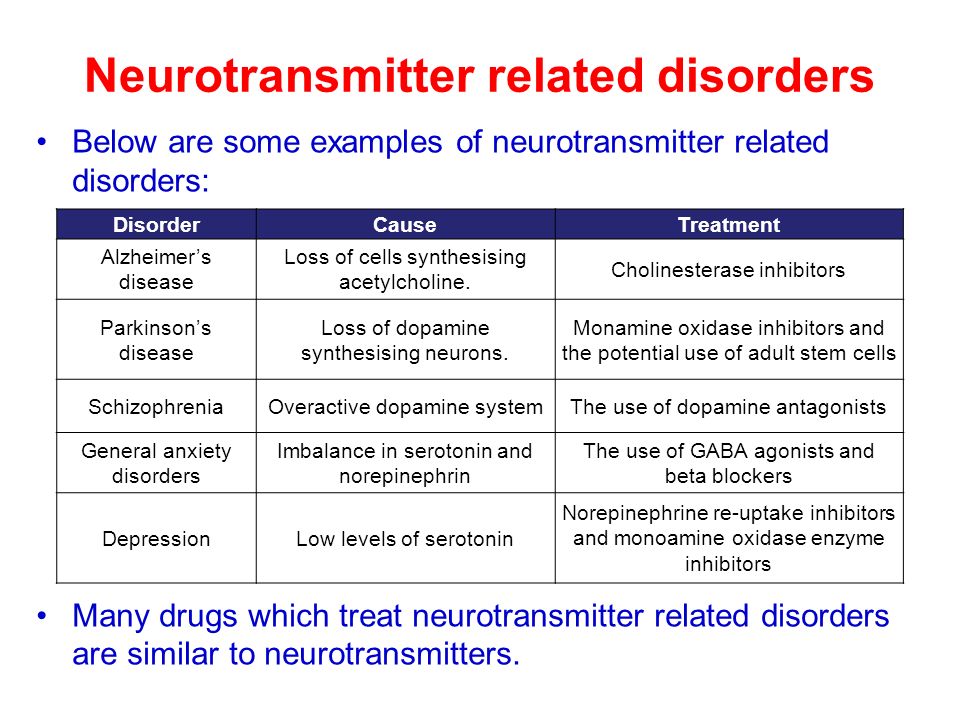 A doctor can still prescribe it for this purpose because the FDA regulates drug testing and approval, not how doctors use them to treat their patients. Your doctor may prescribe an unlabeled drug if he or she thinks it is best for your treatment.
A doctor can still prescribe it for this purpose because the FDA regulates drug testing and approval, not how doctors use them to treat their patients. Your doctor may prescribe an unlabeled drug if he or she thinks it is best for your treatment.
How can beta-blockers help with anxiety?
Beta-blockers do not treat the underlying psychological causes of anxiety, but they can help you manage some of your body's physical reactions to anxiety, such as:
- rapid heartbeat
- trembling voice and hands
- sweating
- dizziness
- By reducing your body's response to stress, you are less likely to worry during stressful periods.
- Humor
- Cold hands and legs
- Headache
- Dizziness or fainting
- Depression
Beta blockers are best for short-term anxiety due to certain events, not long-term anxiety. For example, you can take a beta-blocker before public speaking if that makes you anxious.
A 2016 review Existing studies on the use of short-term propranolol in the treatment of various anxiety disorders have shown that its effects are similar to those of benzodiazepines.
 This is the second class of drugs that are often used to treat anxiety and panic disorders. However, benzodiazepines can cause a number of side effects, and some people are at higher risk of becoming dependent on them.
This is the second class of drugs that are often used to treat anxiety and panic disorders. However, benzodiazepines can cause a number of side effects, and some people are at higher risk of becoming dependent on them. However, the same review found that beta-blockers are not very effective for social phobias.
People respond differently to medications, especially when it comes to treating mental health problems such as anxiety. What works for one person may not work for another. You may also need additional treatment options for your anxiety while taking beta-blockers to get to the more psychological aspects.
How do I take beta blockers for anxiety?
Both atenolol and propranolol are available in tablet form. The amount you need to take also depends on the type of beta blocker and your medical history. Never take more than what your doctor has prescribed.
You will probably notice results the first time you take beta-blockers for anxiety, but they may take an hour or two to take full effect.
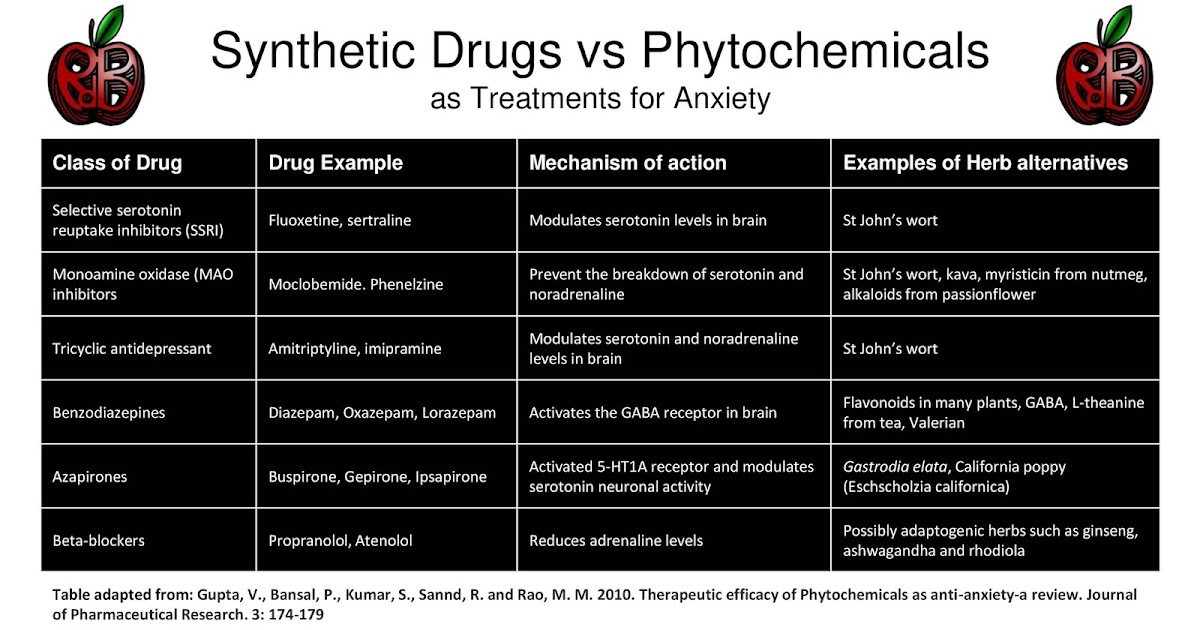 During this time, you will feel a drop in your heart rate, which may help you feel more relaxed.
During this time, you will feel a drop in your heart rate, which may help you feel more relaxed. Depending on your symptoms, your doctor may recommend taking beta-blockers regularly or just before stressful events. Typically, beta-blockers will be used in conjunction with other treatments such as therapy, lifestyle changes, and other medications.
What are the possible side effects?
Beta-blockers may cause some side effects, especially when you first start taking them.
Possible side effects include:
- Gomber, diarrhea or constipation or constituent constipation or constituent constituent serious side effects, including:
- very slow or irregular heartbeat
- low blood sugar
- asthma attack
- swelling and fluid retention and weight gain
doctor. If you regularly take beta-blockers, if you suddenly stop taking them, you may experience severe withdrawal symptoms.
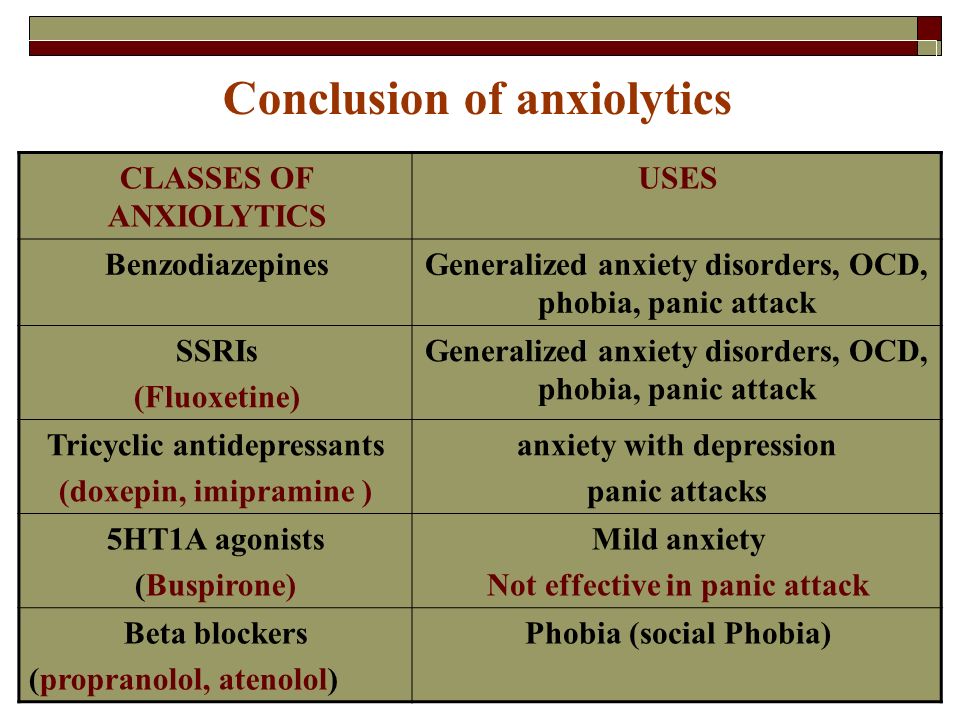
Side effects of beta-blockers can cause anxiety symptoms in some people. You should contact your doctor as soon as possible if you feel that taking beta-blockers is increasing your anxiety.
Who should not take beta-blockers?
Although beta-blockers are generally safe, some people should not take them.
Be sure to tell your doctor before taking beta-blockers if you have:
- asthma
- low blood sugar
- end-stage heart failure
- very low blood pressure
- very slow heartbeat
- 4 If you have any of these conditions or symptoms, you can still take beta blockers, but you will need to work with your doctor to weigh the risks and benefits.
Beta-blockers can also interact with other medicines used to treat many heart conditions and antidepressants, so be sure to tell your doctor about any medicines, supplements or vitamins you are taking.
Essence
Beta-blockers may help manage symptoms in some people with anxiety.
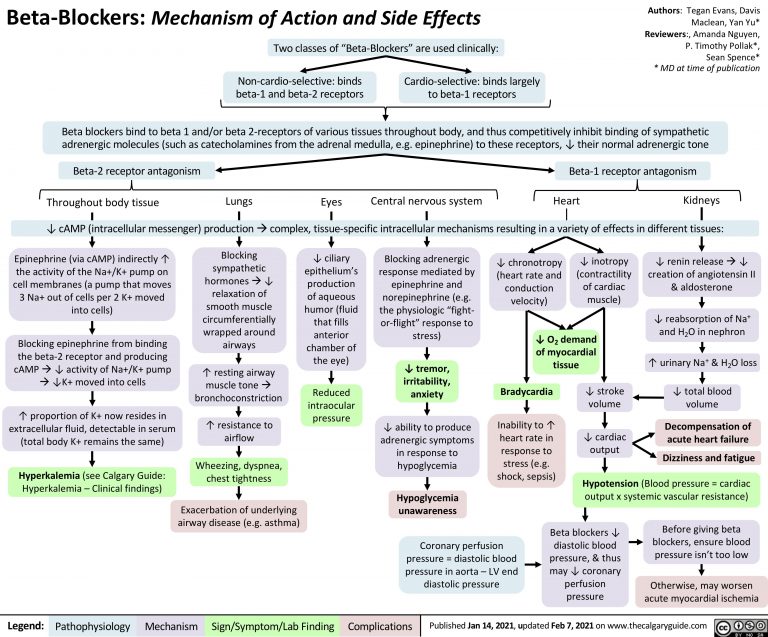
Learn more









